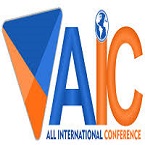Sessions And Tracks
Track-1:- Advances in Assisted Reproductive Technologies (ART)
This session explores cutting-edge developments in ART, including IVF, ICSI, and embryo freezing techniques. It highlights innovations improving success rates, minimizing risks, and expanding access to fertility treatments globally. Discussions will cover the role of artificial intelligence in embryo selection, advancements in cryopreservation, and personalized protocols to optimize outcomes. Attendees will gain insights into emerging technologies such as in vitro maturation (IVM), non-invasive embryo testing, and novel culture media. The session also addresses ethical considerations, regulatory challenges, and strategies to reduce multiple pregnancies. Clinicians, researchers, and lab specialists will benefit from practical case studies and interactive workshops designed to enhance clinical practice and laboratory management in ART centers.
Track-2:- Reproductive Genetics and Genomics
This track delves into genetic and genomic factors influencing fertility, including chromosomal abnormalities, single-gene disorders, and epigenetic modifications. It focuses on recent advances in preimplantation genetic testing (PGT), genome editing, and the use of next-generation sequencing to diagnose and prevent hereditary infertility conditions. Participants will discuss how genetic counseling is integrated into fertility care and explore ethical, legal, and social implications of reproductive genetics. Cutting-edge research on gene-environment interactions and their effects on gamete quality and embryo development will be reviewed. This session fosters multidisciplinary collaboration among geneticists, reproductive specialists, and counselors to improve diagnostic accuracy and personalize treatment plans.
Track-3:- Male Infertility: Diagnosis and Treatment
Focused on the male reproductive system, this session covers causes, diagnosis, and innovative treatments of male infertility. Topics include advances in semen analysis, sperm retrieval techniques, varicocele management, and hormonal therapies. The role of lifestyle factors, environmental toxins, and genetic abnormalities in male fertility will be examined. Recent progress in assisted reproductive procedures specific to male factor infertility, including microsurgical sperm extraction and testicular sperm aspiration, will be presented. Attendees will engage in discussions on emerging therapeutic options such as stem cell therapy and gene therapy, alongside counseling strategies to support affected men and couples.
Track-4:- Fertility Preservation and Oncofertility
This session addresses fertility preservation strategies for cancer patients and others at risk of losing reproductive potential due to medical treatments or aging. It covers ovarian and testicular tissue cryopreservation, gamete freezing, and emerging techniques like in vitro follicle maturation. The track highlights the collaboration between oncologists, reproductive specialists, and counselors to create personalized fertility preservation plans. Ethical considerations, patient counseling, and long-term outcomes of preserved fertility are discussed. Innovations in fertility preservation for transgender individuals and those with autoimmune diseases will also be covered. This session is vital for clinicians managing fertility care in complex medical contexts.
Track-5:- Hormonal Regulation and Endocrine Disorders
This track explores hormonal mechanisms underlying reproductive health and infertility, including disorders like polycystic ovary syndrome (PCOS), thyroid dysfunction, and hypogonadism. Sessions focus on diagnostic challenges, endocrine therapies, and advances in hormone replacement treatments. The impact of endocrine disruptors in the environment on reproductive hormones is reviewed. Emerging research on novel hormonal agents and their clinical applications will be discussed. Attendees will gain insights into managing complex endocrine cases through multidisciplinary approaches integrating endocrinology, gynecology, and reproductive medicine.
Track-6:- Maternal Health and Pregnancy Outcomes
Focusing on the continuum from conception to childbirth, this session examines maternal health factors affecting fertility and pregnancy outcomes. Topics include preconception care, management of high-risk pregnancies, and complications like preeclampsia and gestational diabetes. The influence of nutrition, lifestyle, and psychosocial factors on maternal and fetal health will be discussed. Advances in monitoring fetal development and predicting adverse outcomes using biomarkers and imaging technologies will be highlighted. This track emphasizes integrated care models that improve maternal and neonatal health in infertility patients.
Track-7:- Psychological and Emotional Aspects of Infertility
This important session addresses the mental health challenges faced by individuals and couples experiencing infertility. Topics include anxiety, depression, relationship stress, and coping mechanisms. The role of counseling, support groups, and psychological interventions in fertility clinics will be examined. Emerging research on the impact of stress hormones on reproductive outcomes and how to integrate mental health care into fertility treatment plans will be presented. This session encourages holistic approaches to infertility care by involving psychologists, counselors, and healthcare providers in patient support.
Track-8:- Innovations in Embryology and Laboratory Techniques
This track covers advances in embryo culture systems, time-lapse imaging, embryo biopsy, and quality control in ART laboratories. Discussions include optimizing lab environments, new culture media formulations, and automation in embryology workflows. Cutting-edge technologies such as microfluidics and nanotechnology applications in gamete and embryo handling will be explored. Attendees will learn about standardization protocols and regulatory compliance to improve lab outcomes. This session is ideal for embryologists and lab managers aiming to enhance efficiency and embryo viability.
Track-9:- Lifestyle, Environment, and Reproductive Health
This session examines how lifestyle factors—nutrition, exercise, smoking, alcohol, and stress—and environmental exposures to toxins, pollutants, and endocrine disruptors affect fertility in both men and women. Discussions will include preventive strategies and public health policies to mitigate negative impacts. Research on epigenetic changes driven by environmental factors and their effects on gamete and embryo quality will be presented. The track encourages collaboration between reproductive health specialists, environmental scientists, and public health officials to promote reproductive wellness.
Track-10:- Ethical, Legal, and Social Issues in Reproductive Health
This critical track addresses the complex ethical and legal challenges in reproductive technologies and infertility treatment. Topics include consent, privacy, embryo ownership, surrogacy, gamete donation, and access equity. The impact of evolving regulations and cultural perspectives on clinical practice will be reviewed. The session aims to foster dialogue among clinicians, ethicists, legal experts, and policymakers to navigate emerging issues responsibly and ensure patient rights and welfare are prioritized.
Track-11:- Reproductive Immunology and Implantation
Focused on the immune system’s role in reproduction, this session explores mechanisms of embryo implantation, immune tolerance, and recurrent pregnancy loss. It reviews advances in diagnosing and managing immunological infertility, including the use of immunotherapies and personalized treatment protocols. The role of inflammation, autoimmunity, and the microbiome in reproductive success will be discussed. This track encourages collaboration between immunologists and reproductive specialists to improve clinical outcomes.
Track-12:- Pediatric and Adolescent Reproductive Health
This track addresses reproductive health issues in children and adolescents, including congenital anomalies, early puberty, menstrual disorders, and fertility counseling. It emphasizes early detection, preventive care, and education to support healthy reproductive development. Discussions will include the impact of chronic illnesses and cancer treatments on future fertility, and strategies for fertility preservation in pediatric patients. This session promotes multidisciplinary care involving pediatricians, endocrinologists, psychologists, and reproductive specialists.
Track-13:- Male and Female Contraception Innovations
This session covers advances in contraception methods, including long-acting reversible contraceptives (LARCs), male contraceptive development, and non-hormonal options. It addresses challenges in contraceptive efficacy, side effects, accessibility, and counseling. Research on novel delivery systems and emerging technologies to expand contraceptive choices will be highlighted. This track promotes informed decision-making and reproductive autonomy for both men and women.
Track-14:- Global Perspectives in Reproductive Health
This track highlights reproductive health challenges and solutions across different regions, focusing on disparities in infertility care access, cultural barriers, and resource limitations. It showcases successful programs and policies improving reproductive outcomes in low- and middle-income countries. Discussions will include the role of international collaborations, telemedicine, and capacity-building initiatives. The session fosters global partnerships to advance equitable reproductive healthcare worldwide.
Track-15:- Future Technologies and Digital Health in Reproduction
This forward-looking session explores the integration of digital health tools such as telemedicine, mobile health apps, AI-driven diagnostics, and big data analytics in reproductive care. It examines how wearable technologies and remote monitoring improve patient engagement and treatment personalization. Ethical considerations and data privacy in digital reproductive health will be discussed. Attendees will learn about the potential of blockchain and machine learning to transform infertility diagnosis and management.
Track-16:- Nutrition and Metabolic Influences on Fertility
This session reviews the impact of nutrition, obesity, metabolic syndrome, and related disorders on reproductive function in both sexes. It explores dietary interventions, supplements, and lifestyle modifications that improve fertility outcomes. Research on the gut microbiome’s role in metabolism and reproductive health will be discussed. The track encourages collaboration among nutritionists, endocrinologists, and reproductive specialists to design comprehensive fertility-enhancing strategies.
Market Analysis
For Reproductive Medicine 2026 | April 23,24 2025 | Paris,France
Global Reproductive Health and Infertility Market Overview:-
The reproductive health and infertility market is experiencing robust growth driven by rising infertility rates, technological advancements, increasing awareness, and expanding healthcare infrastructure worldwide. As of 2023, the global reproductive health market was valued at approximately USD 25 billion and is projected to reach USD 45 billion by 2030, growing at a CAGR of around 8%.
Key Market Drivers:-
Increasing age of first-time parents, lifestyle factors such as stress and obesity, and environmental exposures are contributing to rising infertility rates globally. Breakthroughs in assisted reproductive technologies (ART) including in-vitro fertilization (IVF), cryopreservation, and genetic screening are revolutionizing treatment outcomes. Additionally, growing government initiatives supporting fertility preservation and reproductive health awareness are fueling market expansion.
Regional Insights:-
North America dominates the market with its advanced healthcare infrastructure, widespread insurance coverage, and high adoption of ART. Europe follows closely with significant investments in research and fertility clinics. The Asia-Pacific region represents the fastest-growing market segment due to increasing healthcare expenditure, expanding fertility clinics, and improving patient awareness in countries like China, India, and Japan.
Industry Trends:-
Emerging trends include the integration of artificial intelligence for personalized fertility treatments, expansion of fertility preservation services especially for cancer patients, and innovations in non-invasive diagnostics. Telemedicine is increasingly used for patient counseling and follow-ups. Moreover, holistic reproductive health care models incorporating mental health and nutrition are gaining prominence.
Market Challenges:-
Despite growth, challenges such as high treatment costs, limited accessibility in low-resource regions, ethical concerns, and regulatory complexities surrounding ART and genetic interventions persist. Addressing disparities in access and affordability remains a critical hurdle.
Conclusion:-
Reproductive Medicine 2026 is strategically positioned to facilitate global collaboration and innovation in reproductive health, driving advancements that will improve fertility outcomes and quality of life for individuals and families worldwide.






















